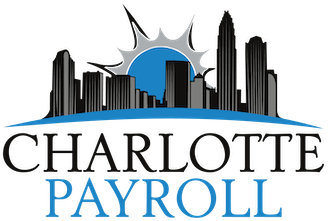A Quick Guide to Payroll Taxes
As we’ve discussed in the past, the United States tax code quite complex with thousands of pages of documents. Trying to understand these laws and codes can be extremely challenging for many business owners and their employees. Here, we put together a guide to help everyone understand exactly what is happening to their paycheck come payday.
Payroll taxes include federal income tax, Social Security, and Medicare, as well as any state and local taxes where the business is located. In addition to payroll taxes, employers are required to pay an unemployment tax on the federal and state level. To pay taxes, a business must first obtain a Federal Employer Identification Number or FEIN.
Federal income tax (FIT) is a tax collected by the IRS on annual earnings of individuals, corporations, trusts, and other legal entities. This tax is applied to all forms of taxable income, which is the gross income of an individual or corporation minus permissible tax deductions. So, any type of income that fall under taxable income, must be reported to the IRS. Most states also have state income tax (SIT), other than Alaska, Florida, Nevada, South Dakota, Texas, Washington and Wyoming. Each state determines its set of deductions and credits as it pertains to SIT. Federal and state income tax are applied to the national defense program, veterans, foreign affairs, social programs, community development, law enforcement, and interest on national debt.
Social Security Taxes, commonly referred to as FICA (Federal Insurance Contributions Act), provide retirement benefits, benefits for dependents of retired workers, and benefits for the disabled and their dependents. The tax was enacted in 1935 as a measure to ensure workers, who had spent their live gainfully employed, would have something to retire with. Most working adults had a very difficult time saving money, as they still do to this very day, so the government stepped in to aid, simply in the form of a program that the employee is required to pay into. This tax is paid by employees and employers.
Medicare taxes are paid by both the employee and employer, to cover the medical benefits for people over 65 years of age. The tax rate is 2.9%, half of which is deducted from the employees’ paycheck and the other half is covered by the employer. Medicare benefits extend to workers, retired workers, and the spouses of workers, all upon reaching the age of 65.
Federal unemployment taxes or FUTA, is a tax paid by the employer only, which provides compensation to individuals who have lost their jobs. The tax rate for FUTA is 6.2% based on the first $7,000 paid as income to every employee. Similarly, state unemployment tax or SUTA (and sometimes SUI), pays on the same premise, with each state setting its own taxable wage base. This differs from the federal taxable wage base, which is $7,000.
Charlotte Payroll provides as standard our payroll tax filing services. We will draft and via EFTPS submit all taxes when due. Our tax penalty guarantee gives you peace of mind knowing your business is compliant! We have a team of dedicated professionals ready to assist you with all your payroll, time and attendance, and HR needs. We offer a full in-the-cloud experience that maximizes efficiency. Our SaasHR platform can be tailored for any size business to run on any device. Process payroll in minutes with our solution so you can get back to running your business.






